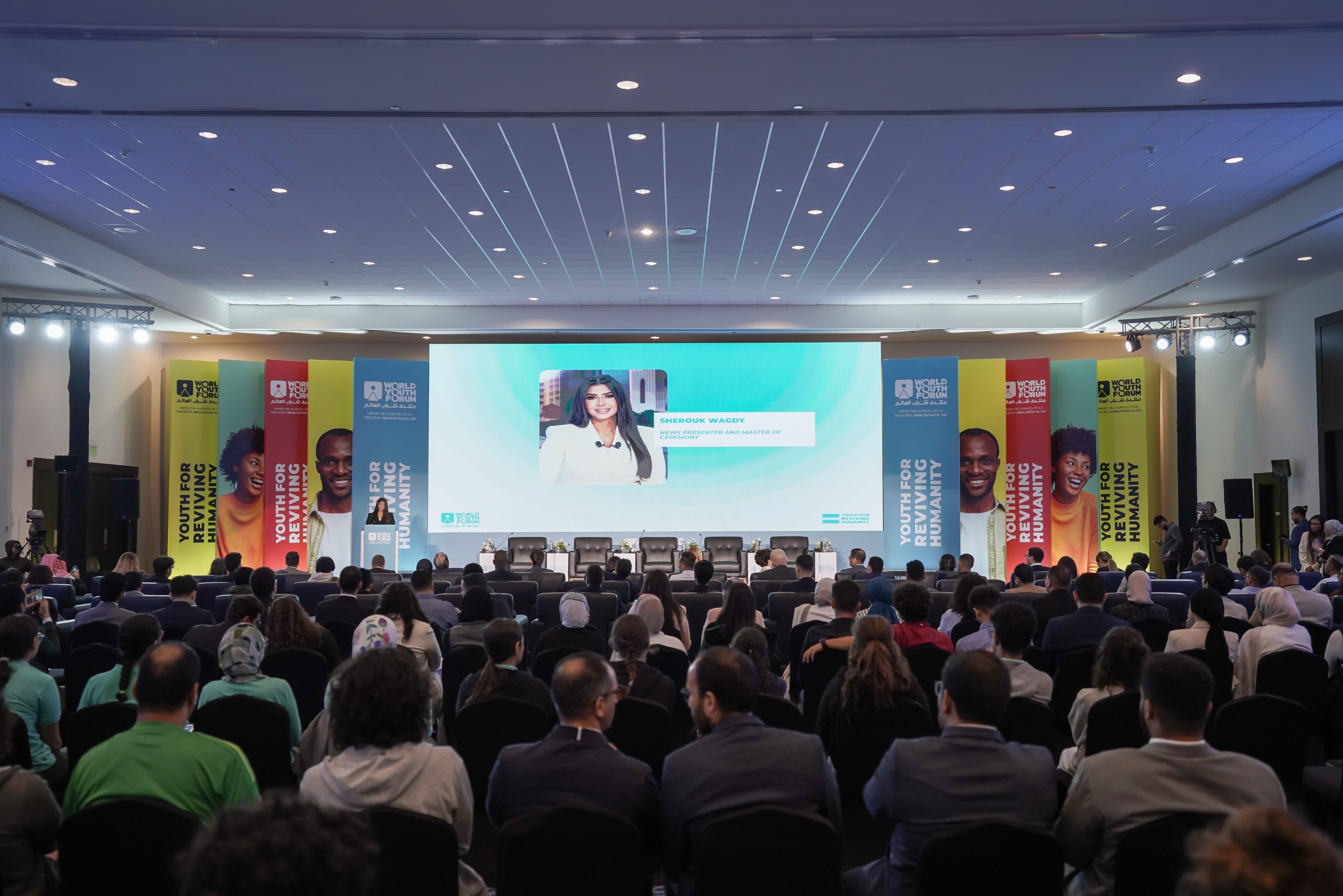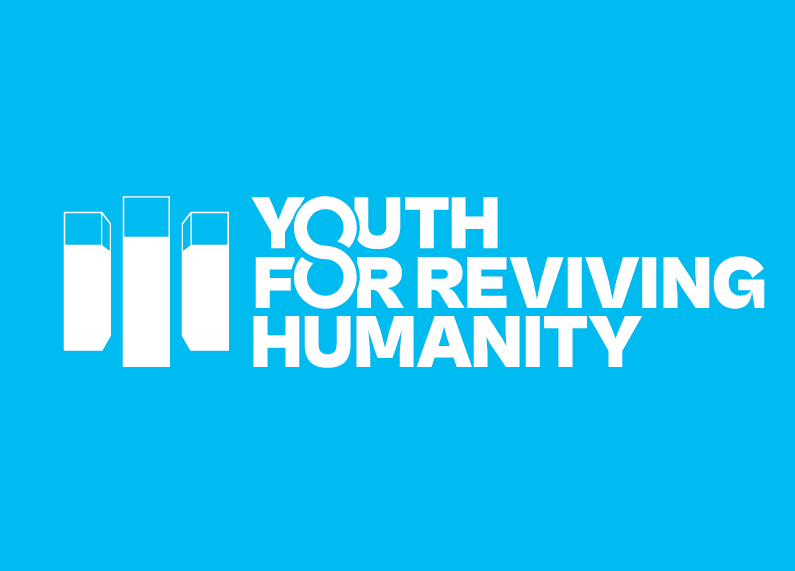Share

During the activities of the third day of the fourth edition of the World Youth Forum, in the presence of President Abdel Fattah Al-Sisi, President of the Republic, a number of speakers and youth participated in the main session entitled “The International Responsibility for Post-Conflict Areas Reconstruction “, with the participation of a list of speakers, Sahar al-Jubouri, Head of the Office of the Representative of the United Nations Relief and Works Agency for Palestine Refugees (UNRWA) in Cairo, Gratsila Letsa, Senior Advisor to the Department of Human Rights, Civil Society and Governance in the Delegation of the European Union in Egypt, Ambassador Ahmed Abdellatif, Director General of the Cairo International Centre for Conflict Resolution, Peacekeeping and Peacebuilding, and Tarek Hamoud Al-Numani, Yemeni Youth Ambassador to the Arab-African Council for Integration and Development, and Leslie Reid, USAID Mission Manager in Egypt, Susan Mikael, Regional Director of the United Nations Entity for Gender Equality and the Empowerment of Women at UN-Women, and Awa Dabo, Vice President and in charge of the United Nations Peacebuilding Support and Building Office.
A video session began with a video presentation explaining the suffering in conflict areas and the need for urgent assistance from the international community and promoting sustainability to prevent conflict again. The conflicts have caused huge losses. The cost of rebuilding Libya is 110 billion dollars, Syria is $900 billion, Yemen is 30 billion dollars, and the Gaza Strip at least 20 billion dollars, and these countries cannot save these amounts.
Tariq Hamoud Al-Numani, Yemeni Youth Ambassador to the Arab-African Council for Integration and Development, said that Yemen is suffering the worst humanitarian disaster in the world after seven years of conflict, which led to 4 and a half million displaced people, and the death rate of children increased by one child every 9 minutes as a result of malnutrition. He wondered where the international subsidy funds estimated at $25 billion go. He called for the rehabilitation of Yemeni youth at the National Training Academy to be the first nucleus of Yemen’s post-conflict reconstruction.
Sahar al-Jubouri, head of the representative office of the United Nations Relief and Works Agency for Palestine Refugees (UNRWA) in Cairo, reviewed the tragedy experienced by displaced Palestinians. Refugees’ dependence on the Agency has increased financially, causing great pressure on it. It needs sustainable funding, praising Egypt’s pivotal role in humanitarian access and supporting the Agency in reconstruction.
Susan Mikhail, Regional Director of the United Nations Entity for Gender Equality and the Empowerment of Women (UN-Women), stressed that during times of conflict it becomes difficult to protect civilians, that women and children are most affected by psychologically, economically and socially conflict, violence against women is increasing and children are being recruited in conflict zones, and Mikhail appealed to the international community to protect women and children, provide humanitarian assistance and channel funding for capacity-building.
Grazilla Letsa, Senior Advisor to the Department of Human Rights, Civil Society and Governance, praised the European Union delegation in Egypt, the Egyptian efforts to reduce the risks posed by migration and participation between the private and government sectors for reconstruction. She also stressed the importance of focussing on the political dimension and adopting what she called “preventive diplomacy.” She added that there must be a comprehensive approach
Leslie Reid, USAID’s mission manager in Egypt, participated in emphasising that conflicts are the natural consequence of instability, adding that they are expected to continue in countries without social and economic inclusion and governance. She explained USAID’s efforts to ensure that grants reach beneficiaries, and called for participation in the design of this strategy with the need to focus on the human factor.
Ambassador Ahmed Abdel Latif, Director General of the Cairo International Peacekeeping Centre, stressed that reconstruction must be one of the world’s priorities. He praised the integrated Egyptian experience in eradicating terrorism, rebuilding, and launching the presidential initiative “A Life of Dignified,” and highlighted young people as the focus of development with their creative energies and ideas.
Awa Dabo, Vice-President and Officer-in-Charge of the United Nations Peacebuilding Support and Support and Building Office, stressed the importance of youth participation without marginalisation in the reconstruction and sustainability of the peace process. They are the leaders of tomorrow and today, so gender equality should be supported, and the rehabilitation and capacity-building process should be involved.
At the end of the session, President Abdel Fattah al-Sisi, President of the Republic, recommended that conflicts should stop so that everyone can participate in reconstruction. He pointed out the difference between simply mitigating the effects of the crisis and reconstruction in the event of war, because reconstruction is not only money but a process with humanitarian, psychological and social dimensions.
Speaking about the National Training Academy, the President continued that everything in Egypt is available to everyone. On behalf of the youth of the conference, he called on all leaders in countries with conflicts to look elsewhere to minimise their effects, stressing the non-interference in the internal affairs of countries, adding that change by force leads to uncontrollable devastation, and that God has preferred us that we have not reached this fate. President Sisi pointed to Egypt’s readiness to provide aid and assistance.
It is worth mentioning that the documentary film “Reconstruction”, which was screened during the session, was prepared by the artistic production team of the organising committee of the World Youth Forum. The film revolves around the magnitude of the losses caused by the rapid pace of armed conflicts in our world today, while highlighting Egypt’s active presence in Arab and African issues and its development diplomacy to restore the balance of power in conflict areas where destruction has become commonplace.
STAY IN THE LOOP




